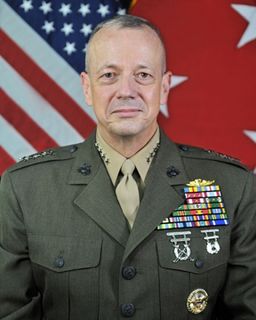A Quote by John Yoo
Applying different standards to al Qaeda does not abandon Geneva, but only recognizes that the U.S. faces a stateless enemy never contemplated by the Conventions.
Related Quotes
There are pros and cons about the policy decision whether to follow the Geneva Conventions in a war where they do not legally apply. Among the pros might be benefits for America's image, its ability to argue in future conflicts that the Conventions should be followed, and training soldiers to follow only the Geneva standards. Among the cons might be greater security and safety for our troops who capture and detain al Qaeda operatives and the ability to gather more actionable intelligence swiftly.
The United States of course wants to follow the highest standards of conduct with regard to enemy combatants who follow the rules of war. It should and does follow the Geneva Conventions scrupulously when fighting the armed forces of other nations that have signed the Geneva Conventions or follow their principles.
The United States is at war with the al Qaeda terrorist group. Al Qaeda is not a nation-state and it has not signed the Geneva Conventions. It shows no desire to obey the laws of war; if anything it directly violates them by disguising themselves as civilians and attacking purely civilian targets to cause massive casualties.
Certainly there’s a connection between Iraq and Al Qaeda. It doesn’t surprise me at all that they would be talking to Al Qaeda, that there would be some Al Qaeda there or that Saddam Hussein might even be, you know, discussing gee, I wonder since I don’t have any scuds and since the Americans are coming at me, I wonder if I could take advantage of Al Qaeda? How would I do it? Is it worth the risk? What could they do for me?
Some Pakistanis fought for the Taliban. Pakistani extremist groups provided infrastructural support to Al Qaeda. There was a coming and going of Al Qaeda militants and leaders between Afghanistan and Pakistan for several years. All that has really happened is that Al Qaeda has escaped from Afghanistan come into Pakistan, got in touch with their contacts and friends in these extremist groups, which then provided them with safe houses, cars, and not just in the border areas but also in the cities. Rooting out Al Qaeda in Pakistan now is where the main battle is being fought.





























